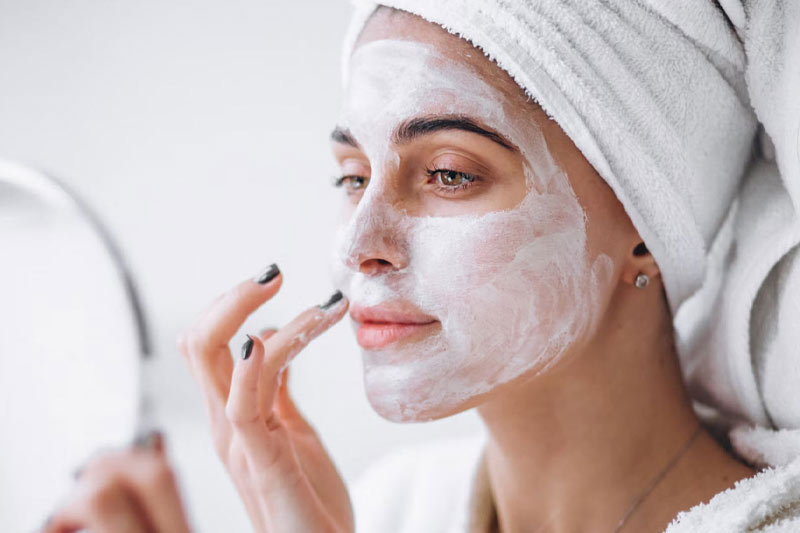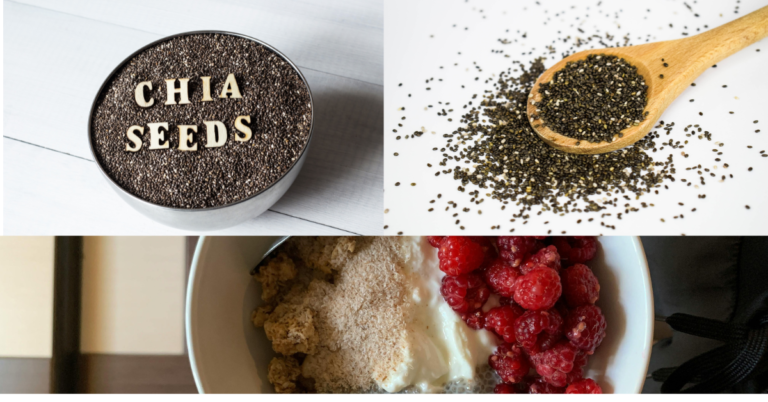Healthy Skin: Science-Backed Strategies for Radiant
Your skin is your body’s largest organ, serving as a protective barrier between your internal systems and the external environment. More than just a superficial concern, healthy skin reflects your overall well-being and plays crucial roles in protection, temperature regulation, sensation, and vitamin D synthesis. Understanding how to properly care for your skin can dramatically improve not only your appearance but also your health and confidence.
Understanding Your Skin: The Foundation of Health
The Skin Barrier: Your Body’s First Line of Defense
Your skin barrier, primarily composed of the outermost layer called the stratum corneum, is a remarkable protective system. This barrier defends your body against environmental threats while simultaneously protecting your body’s critical water balance.
The skin barrier serves multiple vital functions:
- Protection from pathogens: Keeping bacteria, viruses, and fungi from entering your body
- Moisture retention: Preventing excessive water loss and maintaining hydration
- Temperature regulation: Helping your body maintain optimal temperature
- Chemical defense: Protecting against harmful environmental toxins and pollutants
- UV protection: Providing some natural defense against harmful sun rays
When your skin barrier is compromised, you may experience symptoms such as dryness, itching, inflammation, increased sensitivity, and a higher susceptibility to infections and environmental damage.
Healthy Skin Tips for a Glowing Complexion
We all want clear, glowing skin—but with so many products, routines, and myths out there, it can get overwhelming. The good news? You don’t need a 10-step routine or expensive serums to have healthy skin. The key is sticking to simple, science-backed habits that support your skin from the inside out.

Here’s a straightforward guide to help you achieve naturally radiant skin.
- Hydrate, Inside and Out
You’ve probably heard this one a million times, and for good reason. Drinking enough water is one of the easiest and most effective things you can do for your skin. When you’re dehydrated, your skin can look dry, dull, and tired.
Tip: Aim for at least 8 glasses of water a day. Add lemon or cucumber for an antioxidant boost.
Use a lightweight moisturizer daily to keep your skin hydrated on the outside too.
- Always Wear Sunscreen (Yes, Even on Cloudy Days)
The sun is the #1 cause of premature aging. UV rays can damage skin cells, leading to wrinkles, sunspots, and even skin cancer. Daily sunscreen use is your best defense.
Use broad-spectrum SPF 30 or higher, even if you’re indoors near windows.
Reapply every 2 hours if you’re outside or sweating.
- Cleanse Gently, Not Aggressively
Cleansing removes dirt, oil, and makeup, but overdoing it can strip your skin’s natural barrier and cause dryness or breakouts.
Wash your face twice a day—morning and night.
Choose a gentle, non-stripping cleanser that matches your skin type.
- Nourish Your Skin With the Right Foods
What you eat shows on your skin. Healthy skin starts with a healthy gut and nutrient-rich diet.
Eat more fruits and vegetables, especially ones rich in vitamin C (like oranges, kiwi, and bell peppers).
Include omega-3s (from salmon, flaxseeds, or walnuts) to reduce inflammation and boost moisture.
Cut back on processed sugar, which can trigger acne and aging.
- Get Enough Quality Sleep
Your skin repairs itself while you sleep. Lack of rest can lead to dullness, puffiness, and breakouts.
Aim for 7–9 hours of sleep each night.
Try a silk pillowcase to reduce friction and keep skin smooth.
- Don’t Skip Moisturizer—Even if You’re Oily
All skin types need moisture. If your skin is oily, skipping moisturizer can actually make it oilier, as your skin overcompensates.
Choose a gel-based or oil-free moisturizer if you have oily or acne-prone skin.
Look for ingredients like hyaluronic acid or ceramides for hydration.
- Watch Your Stress Levels
Chronic stress releases cortisol, which can cause inflammation, breakouts, and worsen skin conditions like eczema or psoriasis.
Practice stress-reducing activities like yoga, meditation, or simply taking a walk.
Take regular screen breaks and protect your mental health.
- Don’t Over-Exfoliate
While exfoliating can leave your skin glowing by removing dead cells, doing it too often can cause irritation, redness, and damage.
Stick to 1–2 times per week for exfoliation.
Use gentle scrubs or chemical exfoliants like AHAs or BHAs.
Healthy Skincare Routine: Simple Steps for Clear, Glowing Skin
Achieving healthy, glowing skin doesn’t have to be complicated or expensive. A consistent skincare routine built around your skin’s natural needs is more effective than chasing the latest trend. Whether you’re dealing with dryness, acne, or dullness—or just want to maintain youthful skin—this guide will help you create a simple, science-backed skincare routine that works.
Let’s break down the essentials of a healthy skincare routine.
Why a Skincare Routine Matters
Cleanse Gently, Twice a Day
Cleansing removes dirt, oil, and leftover makeup that can clog pores and cause breakouts. But it’s important not to over-cleanse or use harsh products.
- Morning: Wash with a gentle cleanser to refresh your skin and remove sweat or oil buildup from the night.
- Evening: Always remove makeup and wash away the day’s pollutants before bed.
Use sulfate-free, pH-balanced cleansers that suit your skin type (gel for oily skin, cream for dry skin).
Use a Toner (Optional but Helpful)
Toners help balance your skin’s pH and prepare it for better absorption of serums and moisturizers.
- Choose alcohol-free toners with soothing ingredients like rose water, witch hazel, or green tea.
- If you have acne-prone skin, look for toners with salicylic acid or niacinamide.
Apply toner using a cotton pad or gently press it into the skin with clean hands.
Apply Serums for Targeted Treatment
Serums are concentrated treatments packed with active ingredients to address specific skin concerns—like wrinkles, dark spots, or dryness.
- For hydration: Try hyaluronic acid.
- For brightening: Use vitamin C serum.
- For anti-aging: Go for retinol or peptides.
Apply serum right after toner and before moisturizing. Let it absorb fully.
Moisturize Daily
Moisturizer is essential for all skin types—even oily or acne-prone skin. It helps lock in hydration and creates a protective barrier.
- For dry skin: Use cream-based moisturizers with ceramides or shea butter.
- For oily skin: Try gel-based, non-comedogenic moisturizers.
Apply twice a day, morning and night, to keep your skin soft and smooth.
Protect With Sunscreen Every Morning
This is non-negotiable. UV rays are the biggest cause of premature aging, pigmentation, and skin cancer—even on cloudy days or indoors near windows.
- Use a broad-spectrum SPF 30 or higher.
- Choose mineral sunscreens (with zinc oxide) for sensitive skin.
- Reapply every 2–3 hours if you’re outdoors.
Sunscreen should always be the last step in your morning routine.
Weekly Add-ons for Healthy Skin
In addition to your daily routine, include the following weekly treatments:
Exfoliate (1–2 times a week):
Removes dead skin cells and boosts glow. Use gentle scrubs or chemical exfoliants like AHAs (glycolic acid) or BHAs (salicylic acid).
Face Masks (1–2 times a week):
Hydrating, clay, or sheet masks can give your skin a targeted boost depending on your needs.
Skincare Tips That Actually Work
- Stay hydrated: Drink 7–8 glasses of water daily.
- Eat a skin-friendly diet: Include fruits, vegetables, nuts, and omega-3s.
- Sleep well: Aim for 7–9 hours to allow skin repair overnight.
- Avoid touching your face frequently to prevent bacteria transfer.
- Clean your pillowcases and phone screens regularly.
Your skin is your body’s largest organ. It protects you from pollution, sun damage, and harmful bacteria. But everyday stress, poor sleep, unhealthy diets, and environmental exposure can take a toll. A proper skincare routine helps repair, protect, and nourish your skin—keeping it clear, smooth, and radiant.
The Science-Backed Essentials of Healthy Skin
1. Cleansing: The Foundation of Any Routine
Proper cleansing is the cornerstone of healthy skin, but it’s often misunderstood. The goal is to remove dirt, oil, makeup, and environmental pollutants without stripping your skin’s natural protective oils.
Dermatologist-Recommended Cleansing Guidelines:
- Cleanse twice daily: morning and evening
- Use lukewarm (not hot) water to avoid irritation
- Choose gentle, pH-balanced cleansers
- Avoid harsh scrubbing or abrasive materials
- Pat dry with a clean towel rather than rubbing
For acne-prone skin, dermatologists recommend starting with a hydrating cleanser that contains ingredients like hyaluronic acid and niacinamide to help soothe dry skin while addressing breakouts.
2. Moisturizing: Strengthening Your Skin Barrier
Moisturizers are essential for maintaining healthy skin barrier function. Research shows that regular moisturization may strengthen the immunologic skin barrier by reducing permeability and subsequent allergen penetration.
How Moisturizers Work:
- Humectants (like hyaluronic acid): Draw moisture from the environment into your skin
- Emollients (like ceramides): Fill in gaps between skin cells to smooth and soften
- Occlusives (like petrolatum): Create a protective seal to prevent water loss
Choosing the Right Moisturizer:
- Dry skin: Look for rich creams with ceramides and hyaluronic acid
- Oily skin: Opt for lightweight, oil-free formulations
- Sensitive skin: Choose fragrance-free, hypoallergenic options
- Combination skin: Use different products for different areas of your face
3. Sun Protection: Your Most Important Anti-Aging Tool
Sunscreen is arguably the most crucial component of any skincare routine. The SPF in sunscreen products can help support your skin barrier by absorbing or reflecting UV radiation, which helps minimize damage when you’re exposed to the sun.
Essential Sun Protection Facts:
- Use broad-spectrum SPF 30 or higher daily
- Apply 15-30 minutes before sun exposure
- Reapply every two hours, or after swimming or sweating
- Don’t forget often-missed areas: ears, neck, hands, and feet
- Seek shade during peak UV hours (10 AM to 4 PM)
Research shows that broad-spectrum sunscreen may help maintain the skin barrier and help prevent some signs of skin aging, making it one of the most effective anti-aging interventions available.

Nutrition: Feeding Your Skin from Within
The Science of Skin Nutrition
Recent research has revealed the profound impact that nutrition has on skin health. A comprehensive review published in the journal Nutrients identified the most cited nutrients and compounds related to skin health: vitamin A, carotenoids, vitamin C, vitamin D, vitamin E, zinc, copper, selenium, silicon, polyphenols, and essential fatty acids.
Key Nutrients for Healthy Skin
Vitamin C:
- Essential for collagen synthesis
- Powerful antioxidant that protects against UV damage
- Helps with skin repair and regeneration
- Sources: Citrus fruits, berries, bell peppers, leafy greens
Research from the American Journal of Clinical Nutrition found that higher intakes of vitamin C and linoleic acid and lower intakes of fats and carbohydrates are associated with better skin-aging appearance.
Vitamin A:
- Promotes cell turnover and skin renewal
- Helps prevent signs of aging
- Sources: Sweet potatoes, carrots, leafy greens, liver
Essential Fatty Acids:
- Maintain skin barrier function
- Reduce inflammation
- Sources: Fatty fish, walnuts, flaxseeds, chia seeds
Antioxidants:
- Protect against free radical damage
- Reduce inflammation
- Sources: Berries, dark chocolate, green tea, colorful vegetables
The Anti-Inflammatory Diet for Skin
Research from Australia has shown that a low glycemic index (GI) diet can help reduce the symptoms of acne and improve skin quality.
Foods to Emphasize:
- Fatty fish rich in omega-3s
- Colorful fruits and vegetables
- Whole grains
- Nuts and seeds
- Green tea
Foods to Limit:
- High-glycemic foods (white bread, sugary snacks)
- Processed foods
- Excessive dairy (for some individuals)
- Trans fats and excessive saturated fats
Common Skin Concerns and Evidence-Based Solutions
Acne: Beyond the Surface
Acne is one of the most common skin conditions, affecting people of all ages. Contrary to popular belief, you shouldn’t allow acne to “run its course.” With proper dermatological care, you can often reduce breakouts and prevent scarring.
Evidence-Based Acne Management:
- Use gentle, non-comedogenic cleansers
- Incorporate salicylic acid or benzoyl peroxide as recommended
- Maintain consistent skincare routine
- Avoid over-cleansing or harsh scrubbing
- Consider professional treatments for persistent acne
Aging: A Comprehensive Approach
Skin aging is influenced by both intrinsic factors (genetics, hormones) and extrinsic factors (sun exposure, pollution, lifestyle). Research shows that vitamins, carotenoids, tocopherols, flavonoids, and various plant extracts possess potent anti-oxidant properties that can help combat aging.
Anti-Aging Skincare Strategy:
- Daily broad-spectrum sunscreen
- Retinoids or retinol (start slowly)
- Vitamin C serum
- Hydrating ingredients like hyaluronic acid
- Regular professional treatments as appropriate
Dry and Dehydrated Skin
Skin dryness can result from environmental factors, genetics, age, or compromised barrier function. The key is to both add moisture and prevent water loss.
Hydration Protocol:
- Use humectant-rich products
- Apply moisturizer to damp skin
- Consider using a humidifier
- Avoid hot showers and harsh cleansers
- Drink adequate water throughout the day
Lifestyle Factors That Impact Skin Health
Sleep: Your Skin’s Repair Time
During sleep, your skin undergoes crucial repair processes. Poor sleep quality can lead to increased signs of aging, reduced skin barrier function, and slower wound healing.
Sleep Optimization for Skin Health:
- Aim for 7-9 hours of quality sleep
- Use a silk or satin pillowcase to reduce friction
- Keep your bedroom cool and dark
- Establish a consistent bedtime routine
- Consider using a humidifier in dry climates
Stress Management: The Mind-Skin Connection
Chronic stress can wreak havoc on your skin by increasing inflammation, disrupting the skin barrier, and exacerbating conditions like acne, eczema, and psoriasis.
Stress-Reduction Strategies:
- Regular exercise
- Meditation or mindfulness practices
- Adequate sleep
- Social connections
- Professional help when needed
Hydration: Internal and External
While drinking water alone won’t solve all skin problems, proper hydration supports overall skin function and can help maintain skin elasticity and appearance.
Hydration Guidelines:
- Drink water throughout the day
- Eat water-rich foods (fruits and vegetables)
- Use hydrating skincare products
- Limit dehydrating substances (excessive alcohol, caffeine)

Creating Your Personalized Skincare Routine
Morning Routine Foundation
- Gentle cleanser – Remove overnight buildup
- Antioxidant serum – Vitamin C for protection
- Moisturizer – Hydrate and protect barrier
- Broad-spectrum SPF – Essential daily protection
Evening Routine Foundation
- Double cleanse – Remove makeup and daily buildup
- Treatment products – Retinoids, acids, or targeted treatments
- Hydrating serum – Hyaluronic acid or similar
- Moisturizer – Repair and restore overnight
Customization Based on Skin Type
Oily/Acne-Prone Skin:
- Gel-based cleansers
- Salicylic acid treatments
- Oil-free moisturizers
- Non-comedogenic products
Dry/Sensitive Skin:
- Cream cleansers
- Gentle, fragrance-free products
- Rich moisturizers with ceramides
- Minimal active ingredients initially
Combination Skin:
- Use different products for different areas
- Lightweight moisturizers for oily zones
- More hydrating products for dry areas
Professional Skincare: When to Seek Expert Help
While a good at-home routine is essential, certain skin concerns require professional intervention:
See a Dermatologist for:
- Persistent acne that doesn’t respond to over-the-counter treatments
- Sudden changes in moles or new skin growths
- Severe skin conditions like eczema or psoriasis
- Signs of skin cancer
- Persistent skin problems affecting quality of life
Professional Treatments to Consider:
- Chemical peels for texture and tone
- Professional facials for deep cleansing
- Laser treatments for specific concerns
- Prescription medications when appropriate
Environmental Protection: Defending Against Daily Damage
Pollution Protection
Urban environments expose skin to various pollutants that can accelerate aging and cause inflammation. Protect your skin by:
- Using antioxidant-rich skincare products
- Cleansing thoroughly each evening
- Creating a barrier with moisturizer and sunscreen
- Considering air purifiers for your home
Climate Considerations
Different climates require different skincare approaches:
- Humid climates: Lighter moisturizers, oil control
- Dry climates: Rich moisturizers, humidifiers
- Cold weather: Extra protection, gentle products
- Hot weather: Lightweight, sweat-resistant formulas
The Future of Healthy Skin
Skincare science continues to evolve, with new research revealing better ways to maintain and improve skin health. Emerging trends include:
- Personalized skincare based on genetic testing
- Microbiome-focused products
- Advanced delivery systems for better ingredient penetration
- Sustainable and clean beauty formulations
Building Healthy Habits for Lifelong Skin Health
Achieving and maintaining healthy skin is a marathon, not a sprint. The most effective approach combines:
- Consistency: Regular daily care is more important than expensive products
- Patience: Skin changes take time, typically 4-6 weeks to see results
- Adaptation: Adjust your routine as your skin’s needs change with age and seasons
- Professional guidance: Work with skincare professionals when needed
- Holistic approach: Address lifestyle factors alongside topical treatments
Conclusion: Your Journey to Healthy Skin
Healthy skin is achievable for everyone, regardless of age, skin type, or budget. The key lies in understanding your skin’s unique needs and consistently providing what it requires: gentle cleansing, adequate moisture, sun protection, and nourishment from within.
Remember that healthy skin isn’t about perfection—it’s about maintaining a strong, resilient barrier that protects your body while looking and feeling its best. By combining evidence-based skincare practices with a healthy lifestyle, you can achieve skin that not only looks great but truly supports your overall health and well-being.
Start with the basics—cleanse, moisturize, and protect—then gradually build a routine that works for your specific needs. With patience, consistency, and the right approach, healthy, radiant skin is within your reach.
The investment you make in your skin today will pay dividends for years to come, supporting not just your appearance but your confidence, comfort, and overall quality of life. Your skin has the remarkable ability to heal and renew itself when given the proper care and attention it deserves.







